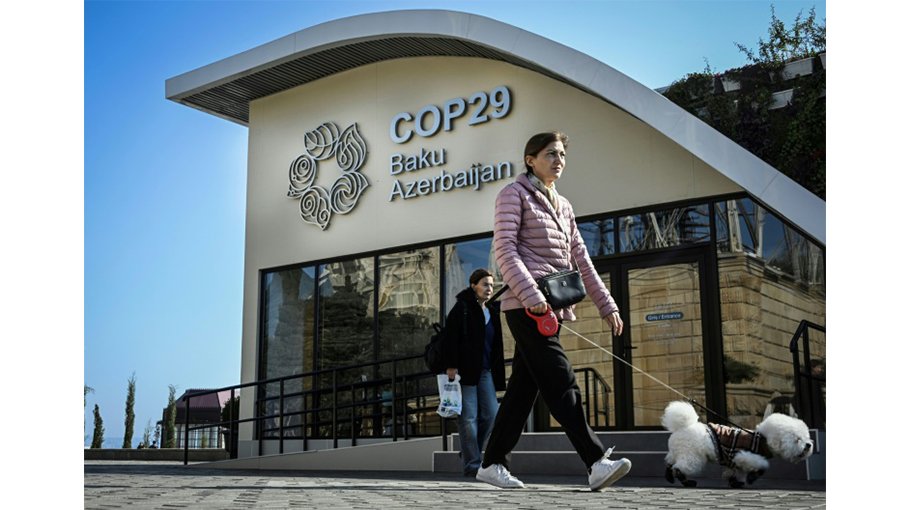Progress and promises: Highlights of COP29

The Conference of the Parties (COP) is the highest policy-making body of the United Nations Framework Convention on Climate Change. The conference serves as a platform for global initiatives and solutions to address the impacts of climate change. World leaders and delegates have come together at the COP29 climate conference, which began in Baku, Azerbaijan, on November 11, 2024, to address global warming and the harmful effects of climate change. The first six days of the conference saw some progress towards combating climate change through a number of important decisions, debates, and activities.
One of the key achievements of COP29 was the finalization of criteria for a central carbon market under Article 6.4. In addition, there was discussion on the introduction of an electronic reporting system to ensure transparency in the exchange of carbon credits under Article 6.2. This will ensure that carbon emissions are reduced and accounted for accurately across countries. This new standard is expected to help increase the flow of fund finance to developing countries. However, while rich countries have already exceeded their "carbon budgets", developing countries still suffer from an unsolved technological and financial crisis to address the impacts of climate change.
The people and developing countries which are affected by climate change, despite being the least responsible for carbon emissions, are paying the highest price. An agreement has been signed to launch a Loss and Damage Fund to help affected countries. It will be effective from 2025 and will help countries affected by the effects of climate change to rebuild and recover. This is seen as a major step forward. International financial institutions are participating in COP29 to play an effective role in climate finance.
However, developing countries have raised the demand for $1.3 trillion in annual support to set a new target for climate finance. This demand has generated constructive discussions. A draft proposal was adopted at the conference, which will help improve the system of financing in the future. In particular, emphasis has been placed on providing special facilities for small island states and least developed countries. The commitment of rich countries to the proposed "Loss and Damage Fund" is still uncertain, which has weakened the chances of developing countries to receive compensation.
According to economists, food prices are rising due to the climate change crisis, and living standards are deteriorating. The G20 should compensate developing countries for the climate change crisis by not giving them loans and reduce the interest rates on loans they have already been given. However, they do not seem to be interested on this issue.
As global temperatures rise, the rate of glacier ice melting has reached record levels, which is a matter of serious concern. In 2023, about 1.2 meters of water equivalent of glacier ice melted, which is about five times the volume of water in the Dead Sea. This information serves as a warning signal about the dangers of global warming. The COP29 conference has called for urgent and effective action to combat these catastrophic effects of climate change. However, so far, no much-anticipated action has been taken to prevent global warming since COP29.
Meanwhile, Argentina's delegation has withdrawn from the COP29 conference and left Azerbaijan at the order of President Javier Miel. This is considered an exceptional event in the context of the climate conference. Environmental experts and organizations have warned that Miel's stance on lax protections for forests and glaciers, climate finance and adaptation could damage Argentina's international relations and negatively affect important trade agreements, including the EU-MERCOSUR agreement.
The French Environment Minister, Agnes Pannier-Ranacher, canceled her trip to Baku to attend the COP29 talks after Azerbaijani President Ilham Aliyev condemned France for colonial crimes in New Caledonia. Also causing concern is the fact that Azerbaijani President Ilham Aliyev, the host of COP29, called Armenia's oil and gas a "gift from God" like the sun, wind and minerals. However, he has assured that he will push hard for his country to move away from fossil fuels and use green and clean energy.
At COP29, experts are criticizing the dominance of fossil fuel producing countries. The large presence of lobbyists linked to fossil fuels and the participation of representatives of oil and gas companies have called into question the policy objectives of the COP conference.
Climate change is having a long-term economic impact. The conference said that the climate crisis is becoming an inflationary problem. If urgent action is not taken to prevent the negative effects of climate change, coastal people in developing countries like Bangladesh will be displaced from their current homes by 2050, and most of their coastal areas may be lost under the sea by 2080. Industrialized countries have pledged to provide $100 billion per year by 2025. But they have not kept their word. The emphasis has been on ensuring long-term economic stability by tackling climate change. While some significant progress has been made in the first six days of talks, more major challenges need to be addressed and effective action taken. Economists have raised options for raising funds through tax systems and wealth taxes. But there remains a lack of global unity and the challenge of securing funds. Experts suggest for the COP conference to be free from fossil fuel lobbying and for environmentally friendly countries to be responsible for hosting it.
The remainder of the conference is expected to feature fruitful discussions on important issues such as climate finance, addressing the energy crisis, and reducing carbon emissions.
Professor Dr Ahmad Kamruzzaman Majumder, Dean, Faculty of Science, Professor, Dept of Environmental Science, Stamford University Bangladesh, Joint Secretary, Bangladesh Poribesh Andolon (BAPA) & Chairman, Center for Atmospheric Pollution Studies (CAPS).



